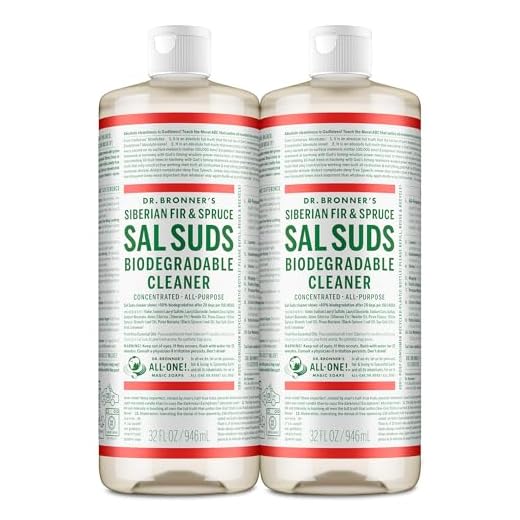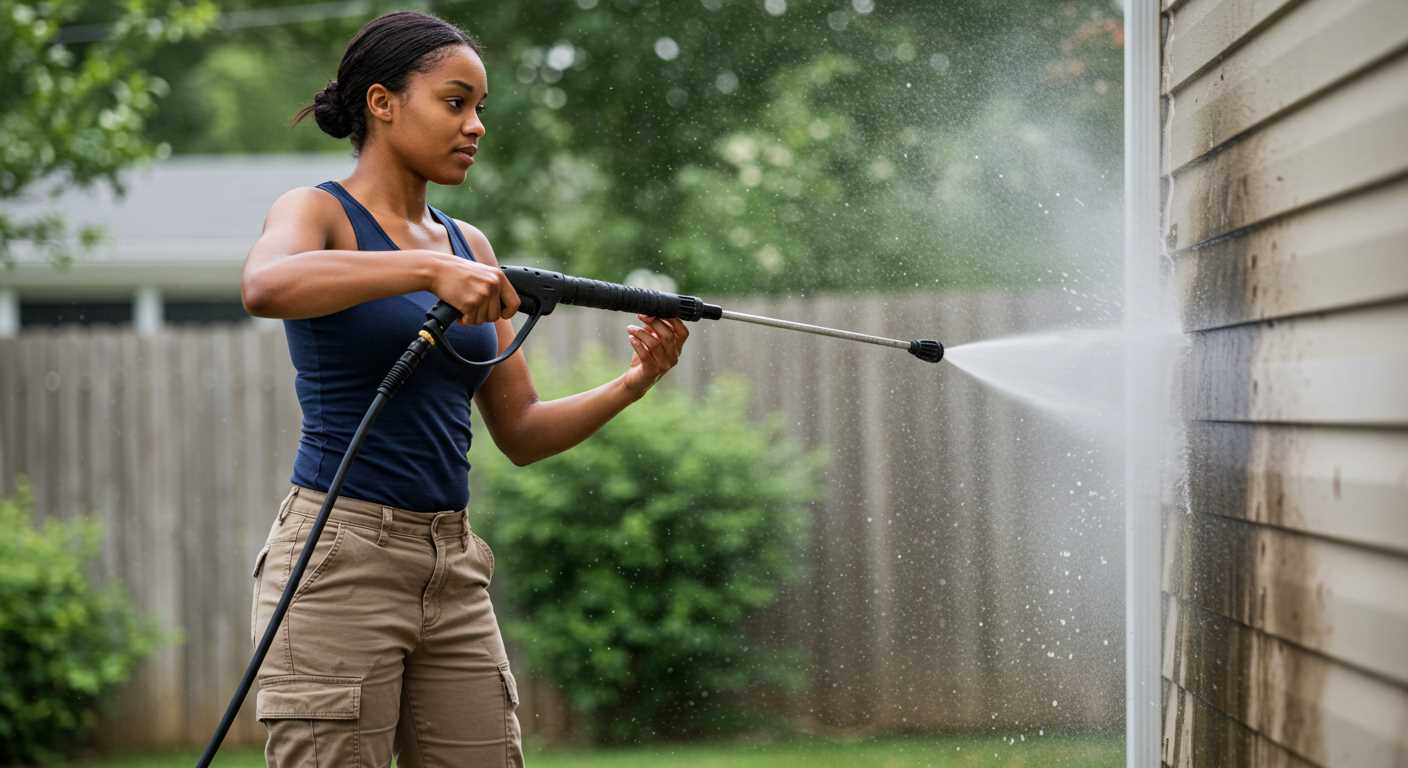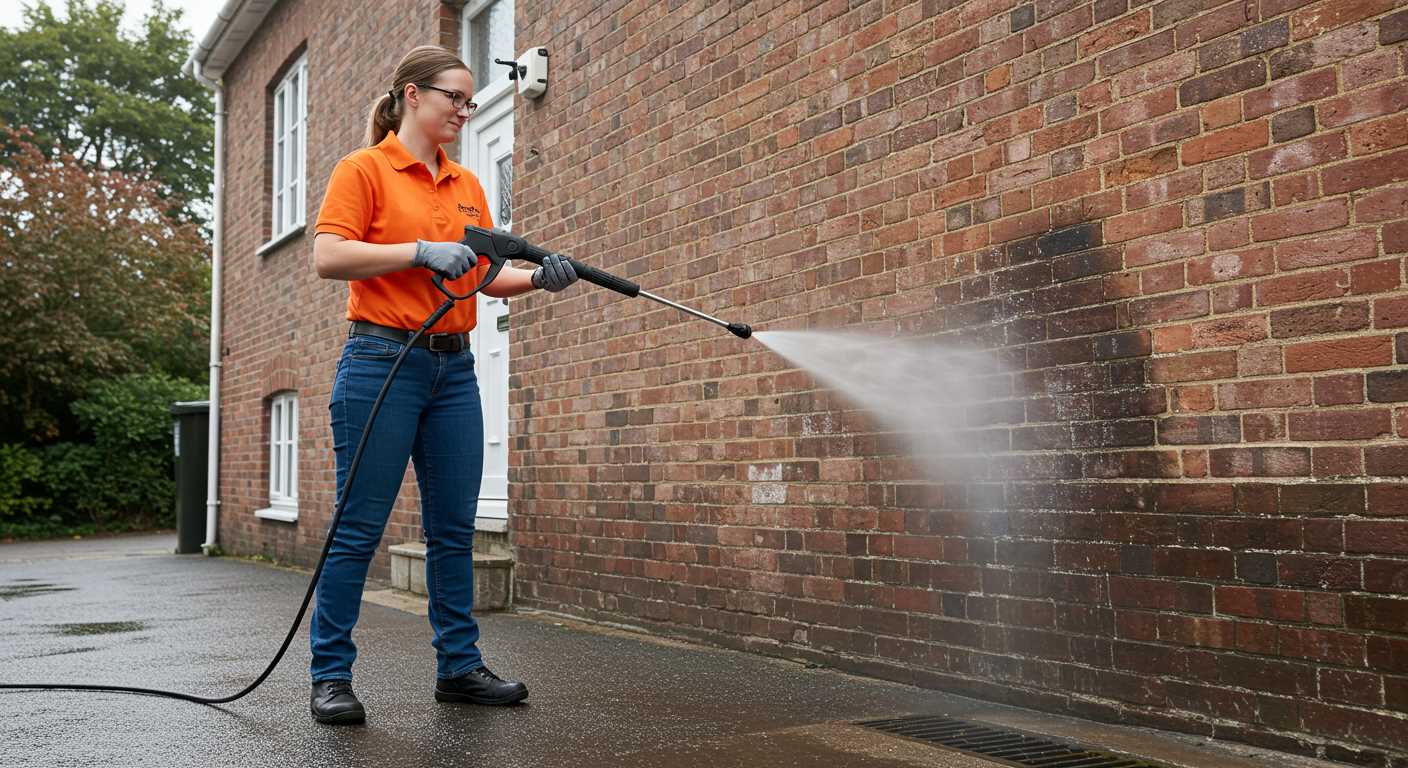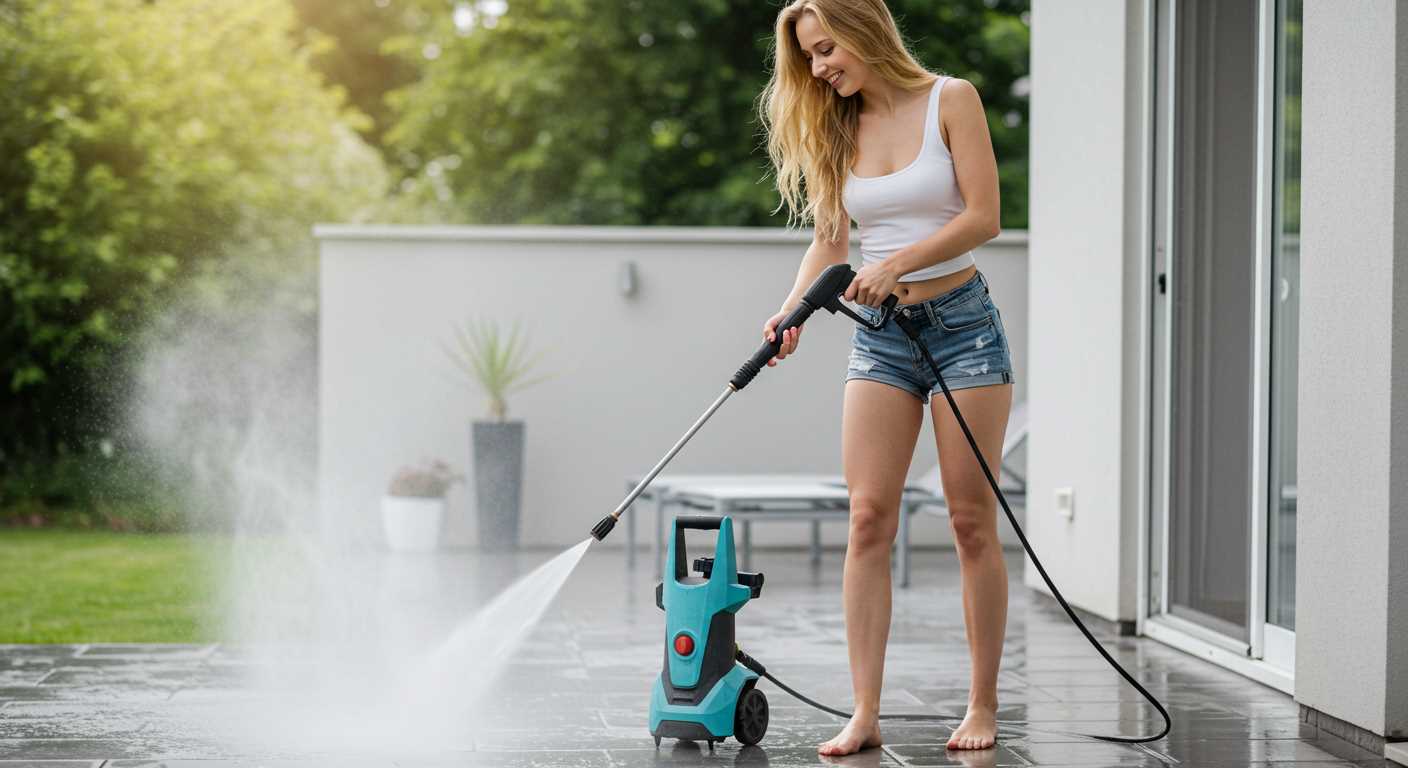



Mixing disinfectants with your cleaning equipment is not advisable. Specifically, using chlorine-based solutions can lead to equipment damage and reduce its lifespan. Instead, opt for products specifically designed for your unit to ensure optimal performance and longevity.
For optimal results, always refer to the manufacturer’s guidelines. Many units are engineered for specific cleaning agents that enhance their effectiveness without causing long-term harm. If mould and mildew are your primary concerns, consider a dedicated mould removal solution that is safe for your model.
The balance between cleaning efficiency and equipment preservation is delicate. Selecting the right agents will not only yield better results but also prevent costly repairs or replacements down the line. Choose wisely to maintain both your machine and your surfaces.
Can You Use Chlorine in a Device for High-Pressure Cleaning?
Using chlorine-producing substances in a cleaning machine is generally inadvisable. The risk of damaging internal components, hoses, and seals significantly outweighs any potential cleaning benefits. Many devices are not constructed to handle strong oxidising agents, and prolonged exposure can lead to deterioration and reduced lifespan.
Instead of chlorine, opt for detergents specifically formulated for high-pressure cleaning equipment. These products are designed to work effectively with the pressure and materials used in these machines, ensuring peak performance without causing harm.
If stubborn mould or mildew needs addressing, consider vinegar or dedicated mould removers as safer alternatives. Always test any new cleaning solution in a small, inconspicuous area before applying it widely.
| Option | Pros | Cons |
|---|---|---|
| Chlorine Solutions | Effective for mould removal | Damaging to machinery, risky for surfaces |
| Commercial Detergents | Safe for equipment, highly effective | May be pricier than homemade alternatives |
| Vinegar | Non-toxic, safe for most surfaces | Less effective on heavy build-ups compared to specialized cleaners |
For maintenance, follow the manufacturer’s instructions for cleaning agents and always ensure the equipment is flushed with clean water after use to prevent residue build-up. Taking these steps will preserve the integrity of your machine and optimise its cleaning power for years to come.
Understanding Pressure Washer Soap Dispensers
Compatibility with liquid cleaners is essential for a functioning unit. Before filling the reservoir, check your machine’s manual for recommended solutions. Many products are designed specifically for this purpose, ensuring optimal cleaning without damaging internal components.
Units typically use a siphoning mechanism. When operated, the cleaner mixes with water, enhancing the stripping action on surfaces. It’s important to select the correct ratio of cleanser to water to avoid issues with build-up or clogs.
Beware of concentrated products. Dilution guidelines are usually provided on the packaging and should be followed precisely. Deviating from these ratios can lead to diminished cleaning power or equipment damage.
Certain solutions may also cause corrosion or degradation of internal parts. Always prioritise formulations approved by the manufacturer. Some machines feature adjustable settings for different cleaning requirements, giving flexibility in usage.
Regular maintenance increases longevity. After each use, it’s wise to flush the system with clean water to prevent residue accumulation. A clean and well-maintained unit performs better and saves on future repair costs.
Observing these principles will lead to enhanced cleaning results while prolonging the life of your equipment. Always prioritise safety by using protective gear when handling any cleaning chemicals.
Types of Chemicals Suitable for Pressure Cleaners

Only specific formulations are fit for use in these machines. Here are some of the key categories that I recommend:
Surfactants: These chemicals break down dirt and grease, allowing water to efficiently lift them away. Look for products specifically labelled for external cleaning tasks, as they enhance the effectiveness of your equipment.
Acidic Cleaners: Such cleaners are ideal for tackling minerals, rust, or hard water stains. They can also be useful for preparing surfaces prior to painting. Ensure they are diluted according to instructions to prevent damage to sensitive surfaces.
Alkaline Cleaners: These are effective against organic materials like oils and fats. Alkaline products work well on outdoor surfaces, including driveways and patios, especially when combined with mechanical agitation.
Detergents: Specific detergents designed for external applications can offer excellent cleaning results. These usually foam up and stick to surfaces for longer periods, aiding in dirt removal.
Biodegradable Cleaners: Eco-friendly options are gaining popularity. They provide cleaning power without harming the environment. Ensure that these formulations are compatible with your equipment to avoid any operational issues.
While using these chemicals, always consult your machine’s manual to ensure compatibility and avoid any potential damage. Different formulations can also vary in pH levels, so moderate care is needed to protect the internal components of your cleaner.
Potential Risks of Using Bleach in a Soap Dispenser
Using household disinfectants in a cleaning machine raises several concerns. The corrosive nature of such substances can damage components and alter performance. Equipment parts, especially those made of rubber and plastic, are sensitive and can degrade quickly when exposed to harsh chemicals, leading to costly repairs or replacements.
Health Hazards
Inhalation of bleach fumes during operation poses significant health risks, potentially resulting in respiratory issues or skin irritations. Proper ventilation is crucial, and protective gear is advisable when working with these substances. Accidental spills can also create hazardous environments, requiring immediate cleanup to prevent slips or skin contact.
Environmental Impact
The runoff from using such chemicals can negatively affect local ecosystems. Contaminated water may harm flora and fauna, illustrating the importance of selecting environmentally friendly alternatives for outdoor cleaning tasks.
Exploring safer options and adhering to manufacturer guidelines is essential for maintaining equipment integrity and protecting personal well-being.
How Bleach Affects Pressure Washer Components

Utilising chlorine-based disinfectants can lead to significant wear and tear on various internal components of cleaning machines. Specifically, the following parts are notably affected:
- Seals and Gaskets: The harsh nature of chlorine can degrade seals, causing leaks and reducing overall pressure during operation. Replacing these seals frequently can become a necessity.
- Pumps: Exposure to bleach can corrode internal pump components, which may shorten the lifespan of the unit. Regular monitoring of pump performance is vital.
- Hoses: Flexible tubing may become brittle and prone to cracking after exposure, necessitating replacements more often than is typical.
- Nozzles: Chemical exposure can lead to clogging or erosion, affecting spray patterns and effectiveness.
- Internal Components: Other internal elements, such as pistons and valves, are at risk as well, which can lead to mechanical failures.
Recommendations for Maintenance
For individuals who may choose to use bleach in their cleaning routines, consider the following maintenance practices:
- Flush the system with clean water immediately after using any chlorine product to minimise damage.
- Inspect seals and hoses regularly for any signs of wear or deterioration.
- Use protective additives specifically designed to counteract the corrosive effects of chlorine on components.
- Keep an eye on performance metrics, and address any dips promptly before they lead to more significant issues.
Maintaining vigilance and adhering to these recommendations should help extend the life of your cleaning machine while minimising the risks associated with chemical use.
Alternatives to Bleach for Cleaning
Hydrogen peroxide is a potent alternative, effective against mould and mildew. It can be mixed with water in a ratio of 1:1 for general cleaning tasks. This solution sanitises surfaces without damaging equipment.
Vinegar is another economical choice. Its natural acidity helps remove stains and disinfect hard surfaces. Use it undiluted for tough grime, but avoid mixing it with baking soda to prevent reaction that reduces cleaning efficacy.
Commercial cleaning agents specifically designed for outdoor equipment offer another solution. These products often contain surfactants that enhance cleaning power while being safe for your machine. Always check for compatibility with your equipment before application.
Enzymatic Cleaners
Enzymatic cleaners break down organic materials such as grease and food residues. These enzymes target specific substances, making them ideal for food preparation areas or outdoor grills. They are non-toxic and environmentally friendly, ensuring safety during use.
Natural Soap Solutions
Plant-based soaps serve as effective cleansers without harsh chemicals. They are safe for various surfaces and usually biodegradable, making them environmentally responsible options. Always verify their suitability for the surface to ensure optimal results.
Best Practices for Using Chemicals in Pressure Washers

For optimal results, always read the manufacturer’s guidelines for your equipment before adding any cleaning agents. Select products specifically designed for use in machines to ensure compatibility and effectiveness.
Mix the chemical solution according to the instructions. Always dilute concentrated formulas to prevent damage to surfaces and components. Using the correct dilution can enhance cleaning power while protecting your unit.
Conduct a spot test when applying a new formulation on a small, inconspicuous area. This step will help identify any potential adverse reactions with surfaces you intend to clean.
Use a separate tank or a dedicated chemical injector system if available. This alternative can prevent the accidental mixing of incompatible substances and ensure a consistent flow of the cleaning solution.
Apply chemicals at lower pressure settings for more controlled coverage. High pressure may cause splattering or excessive runoff, which can waste product and lead to uneven cleaning.
Rinse thoroughly after cleaning to remove any residue left behind. This practice not only prevents streaking but also helps maintain the longevity of both your equipment and the surfaces you clean.
Regularly check hoses and connections for signs of wear or damage caused by chemicals. Maintaining equipment in good condition is crucial for safety and performance.
Finally, safeguard yourself with appropriate personal protective equipment such as gloves and goggles during the application of any cleaning agents. Prioritising safety is paramount while handling potent formulations.
What to Do if You Accidentally Use Bleach
If you have mistakenly added a chlorine-based product to your cleaning machine, immediate action is essential to prevent damage. Follow these steps:
- Immediately stop operation: Turn off the machine right away to minimise any potential harm.
- Flush the system: Run clean water through the unit to remove any residual corrosive materials. This is crucial to prevent internal damage. Aim for at least 5-10 minutes of flushing.
- Check components: Inspect any parts that may have been exposed. Look for signs of corrosion or wear, particularly on seals, hoses, and connectors.
- Consult the manual: Refer to the equipment’s instruction guide for specific recommendations on dealing with chemical contamination. Most manufacturers provide guidance on their products’ cleaning and maintenance.
- Contact customer support: If you notice any signs of damage or if unsure about the next steps, reach out to the manufacturer or a professional service for advice or potential servicing.
Document the incident for future reference, including the amount of chemical used and the response taken. This information can help in troubleshooting or when consulting with professionals.
In the future, ensure to double-check the chemical compatibility before adding any substance to the unit. Understanding the risks of utilising harmful substances will safeguard the longevity of your cleaning equipment.








